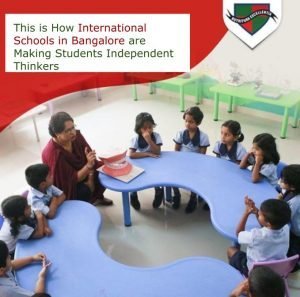
The days where students were expected to come up with one ‘right’ answer in class are long gone. Students today are active learners who are more subjective than objective in their thinking and perceiving information. This is a skill that schools can help cultivate in students so as to help them grow into independent thinkers.
The skill of thinking independently is at the forefront of learning and is a highly desired leadership quality. When students can think independently, they can make sense of the world based on experience and observation, and are better placed to make critical decisions. They also have higher confidence and develop the ability to learn from their mistakes to become successful in everything they do.
Independent thinking can be developed by activating and engaging habits of mind which include like persistence, questioning, and posing problems, thinking flexibly, and taking responsible risks. This empowers students to become better problem solvers.
Let us explore what this looks like in the classroom. Here are some ways teachers can support the development of independent thinking in students:
- Create an open environment
Students come into class expecting to sit and listen to teachers passively. To encourage independent thinking teachers can make clear at the beginning of the school year that they expect students to be active participants in the class. This means more opportunities for students to speak up and share their ideas on what they are learning. This is also an excellent way to increase student alertness in class as they will be more sensitive and tuned into what is happening around them.
- Encourage open-ended questions
Students can be put in small discussion groups to come up with answers that require them to share and exchange ideas on open-ended questions. This is a good activity to get them to actively use their minds as well as develop the habit of carefully and attentively listening to their peers. At the end of the discussion, students can be asked to share highlights from each group with the rest of the class. The same questions can be repeated in a cycle for students to see how their independent thinking skills have improved over time.
- Focus on the positive and reward initiative
When students take risks make it a point to acknowledge and encourage that initiative. Once a student feels that they did the right thing by taking a risk, then you can move to analysing the validity of their ideas. This keeps students involved in the learning process and deepens their learning.
A number of schools all over India and including the top CBSE schools in Bangalore have experienced tremendous success using the above techniques to build independent thinking in students.
